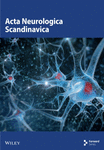Cognitive decline and treatment options for patients with vascular dementia
Abstract
Cognitive impairment is the primary symptom of vascular dementia (VaD). Animal and human studies indicate that, as with Alzheimer's disease (AD), deficits in cholinergic transmission − including nicotinic receptor binding abnormalities − may be responsible for the development of cognitive impairment associated with VaD. Therefore, studies of acetylcholinesterase inhibitors (AChEIs) have been initiated and have shown promising results to date. These agents have demonstrated cognitive and global benefits in patients with VaD. Additionally, functional and behavioral benefits have been reported with the dual-mechanism AChEI galantamine. These studies suggest a potential role for AChEIs in the management of cognitive impairment associated with VaD.




